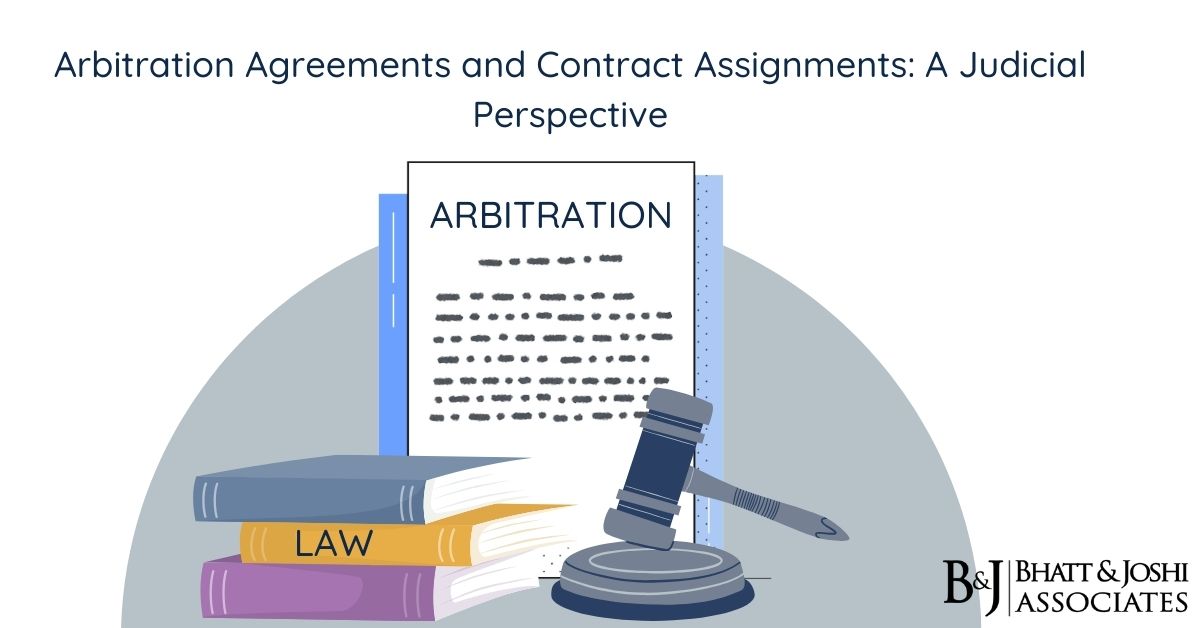Introduction
In the intricate web of commercial transactions and disputes, the Delhi High Court’s judgment in the case of *DLF Ltd. Vs. PNB Housing Finance Ltd. and Ors.* delivered on 22 March 2024, stands as a pivotal examination of arbitration agreements’ binding nature on assignees. This comprehensive article delves into the judgment’s core, offering insights into the principles that govern the assignment of contracts containing arbitration agreements, thus serving as a significant reference point for legal professionals and entities engaging in complex Contract Assignments.
Background of the Dispute
The genesis of the legal battle lies in a series of financial transactions and securities involving DLF Ltd., PNB Housing Finance Ltd. (PNBHFL), and several other stakeholders. Central to the dispute was a Share Pledge Agreement (SPA) containing an arbitration clause, raising critical questions about the nature and extent of arbitration agreements’ applicability, especially in cases of contract assignment.
Key Legal Questions Addressed
The judgment meticulously navigates through the intricate details of the dispute, focusing on the SPA’s assignment to Omkara and the subsequent invocation of the arbitration clause by DLF to address arising disputes. The core legal question revolved around whether an assignee of a contract containing an arbitration agreement is bound by said agreement.
Navigating Contract Assignments in Arbitration Agreements”:
– Paragraphs 51-52 Analysis: The court unequivocally states that an assignee of a contract that includes an arbitration agreement is invariably bound by the arbitration clause. This means that the assignee, upon accepting the contract’s benefits, also assumes the obligations, including the duty to arbitrate disputes.
“The assignee would take both the benefit and burden of the arbitration agreement i.e., the assignee can invoke the arbitration agreement to pursue a claim and can be compelled to arbitrate a dispute raised by another party.”
Consensual vs. Non-Consensual Theories
– Paragraph 59 Commentary: The judgment delineates the distinction between consensual and non-consensual theories in binding non-signatories to arbitration agreements. It emphasizes mutual intent and equity principles, expanding the arbitration discourse beyond mere contractual obligations to include good faith considerations.
Implications of Delay and Inaction
– Paragraph 60 Insight: By analyzing the potential for binding non-signatories, the judgment explores the multifaceted nature of arbitration agreements, indicating that a thorough examination of corporate affiliations and intentions might reveal implied consent to arbitrate.
Concluding the Arbitration Debate
In its decisive move, the court appoints an independent sole arbitrator, Mr. Justice (Retd.) V. Ramasubramanian, highlighting the judiciary’s proactive stance in ensuring that commercial disputes find a resolution within the structured and principled realm of arbitration.
Broader Implications: Arbitration’s Role in Contract Assignments
The Delhi High Court’s ruling in DLF Ltd. Vs. PNB Housing Finance Ltd. and Ors. not only clarifies the legal landscape surrounding arbitration agreements within assigned contracts but also underscores the arbitration process’s efficacy in resolving complex commercial disputes. By affirming the binding nature of arbitration clauses on assignees, the judgment fortifies the arbitration agreement’s foundational role in commercial law, advocating for its recognition and enforcement irrespective of contract assignments.
Conclusion: Reinforcing the Arbitration Framework and Contract Assignments
This judgment signifies a robust affirmation of arbitration as a preferred dispute resolution mechanism in commercial law, ensuring that contractual assignments do not dilute the arbitration agreement’s sanctity. For legal practitioners, contract negotiators, and businesses, the ruling serves as a critical reminder of the importance of clearly understanding and drafting arbitration clauses within commercial contracts, thereby safeguarding the interests of all parties involved and maintaining the commercial transactions’ integrity.














